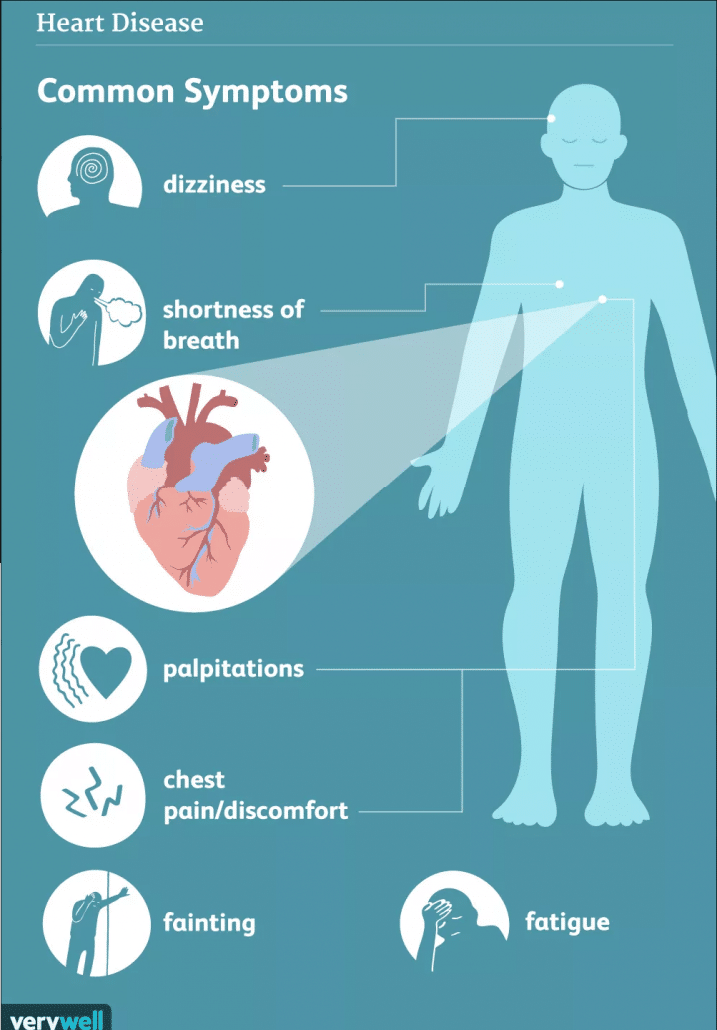We HEART Your Health! Tips on Preventing Heart Disease
By: E. Demond Scott, MD, MPH
February is American Heart Month, a time to focus on the importance of keeping a strong and healthy heart. It’s a great time to educate communities about the importance of taking care of their hearts and share tips and tricks on how to stay healthy. Heart conditions are important to learn about because, contrary to what most individuals believe, they can affect anyone, regardless of gender, age or ethnicity.
HEART DISEASES
While there are many different types of heart diseases, the most common is coronary artery disease. Coronary artery disease is caused by a buildup of plaque in the artery, which blocks the flow of blood to other parts of the body. The blockage of blood flow can cause the heart to work harder than it should, which later leads to a heart attack.
This progression of events happens quite frequently, making coronary artery disease the leading cause of heart attacks in America. It is averaged that every 40 seconds, someone in the United States will suffer from a heart attack. Around 790,000 people in the United States will have a heart attack in just one year alone (CDC). Many individuals believe that men are more likely to suffer from heart attacks, but that is not necessarily the case. Women make up half of the deaths from heart attacks; in fact, approximately five times more women die from heart attacks than from breast cancer (Bayer).
SYMPTOMS

Symptoms of Heart Disease – Copyright: verywellhealth
Although the symptoms of a heart attack differ slightly from person to person, there is a common pattern. Often, the first symptom noted is pain or discomfort in the jaw, neck or back. Then it is common to feel weak, light-headed and sometimes even faint. Chest pain and discomfort are likely to follow, as well as pain or discomfort in the arms or shoulder area. Shortness of breath is also a typical symptom for heart attacks (American Heart Association). Women are likely to describe feeling a sharp burning pain in the neck, jaw, throat, abdomen or back. If a person exhibits any of these symptoms, call 911 as soon as possible. The sooner the heart attack is diagnosed, the easier it is to treat.
TREATMENTS
Since there are many different types of heart problems and disease, there are many different types of treatment options. In the case of a heart attack, a surgeon can perform several kinds of procedures in response (American Heart Association). There are various medications that can be prescribed to help create and maintain a heart-healthy lifestyle. However, it is far better to avoid the risk factors that contribute to heart disease well before complications arise.
RISK FACTORS
Having high blood pressure and cholesterol can increase the risk of having heart problems and other diseases. High blood pressure (also called hypertension) and cholesterol are common for people in their 40s and 50s; almost half of adults in the United States live with high blood pressure. There are typically no symptoms associated with either, so it is best to get regular checkups to monitor and reduce the risk of high blood pressure/cholesterol. If hypertension is not treated, it can lead to many health issues such as stroke, vision loss, heart attack, kidney disease or failure, sexual dysfunction or heart failure (American Heart Association). High cholesterol is typically caused by an unhealthy lifestyle, like an unhealthy diet, lack of physical activity, smoking or exposure to smoke, or even excess weight. Making simple lifestyle changes, like eating healthier foods, getting more physical exercise, not smoking, and losing or maintaining a healthy weight can help reduce cholesterol levels (American Heart Association).
Diabetes is another health issue that can raise the chance of developing a heart disease. Diabetes is an imbalance of glucose (sugar) in the bloodstream, which is particularly bad for heart health. According to the CDC, people with diabetes are at a much higher risk of death from heart disease than those without diabetes.
Living an unhealthy lifestyle increases the likelihood of developing heart disease. Eating unhealthy food, food that is high in saturated fat, trans-fat and cholesterol, or consuming too much sodium, can raise blood pressure levels. Lack of physical exercise can also increase the risk of hypertension, cholesterol, obesity, or other medical issues that can decrease heart health. Moreover, alcohol and tobacco use are known to decrease the overall health of hearts. Smoking damages the arteries and heart, while nicotine raises blood pressure (CDC).
PREVENTION OF HEART DISEASES
To be heart-healthy, stay fit! More exercise means more work the heart is doing. Being active gets the blood moving, decreasing the risk of cardiovascular disease, and improving physical and mental health. The American Heart Association recommends being active for at least 150 minutes a week, which really isn’t as bad as it sounds! It’s just getting physical exercise for 30 minutes a day, five days a week. Nevertheless, any amount of physical exercise is better than none. Easy, simple changes in everyday life can improve heart health. For example, try taking the stairs instead of the elevator, or park a little further back from the store or office.
Additionally, refraining from smoking or vaping can improve overall physical and mental health. There are many proven benefits of not smoking, including a lower risk of suffering from a heart attack or stroke. If you or someone you know is struggling, talking with a health care provider can make it easier to quit smoking (Department of Human Health & Human Services).
Another great way to maintain a healthy heart is to have a well-balanced diet. Reducing a high salt intake will lower blood pressure. Eating more fruits and vegetables can also reduce blood pressure. Foods that contain high trans-fat, saturated fat and added sugar raise the risk factor for heart diseases; instead, try buying fresh food at the store, or “low-sodium” or “no sugar added” products, if possible. Use less salt while cooking and try to opt for vegetables or salad when eating at restaurants. Maintaining a well-balanced diet can help improve health and lower the risk of many different diseases.
Finally, achieving heart wellness can also be as simple as taking prescribed medications. In cases of high blood pressure or high cholesterol, staying up-to-date on medications can bring down the high blood pressure and cholesterol. Having high blood pressure or high cholesterol increases the risk of heart disease and stroke (CDC).
Heart disease is serious, and it is important to stay healthy. To schedule an appointment with a healthcare provider for a preventive health checkup, please contact AxessPointe Community Health Centers, Inc. today. For a full list of medical services, visit: https://axesspointe.org/medical-services/ or call us at 888-975-9188.
REFERENCES
“Behaviors That Increase Risk for Heart Disease.” Centers for Disease Control and Prevention, Centers for Disease Control and Prevention, www.cdc.gov/heartdisease/behavior.htm.
“CDC Features.” Centers for Disease Control and Prevention, Centers for Disease Control and Prevention, 12 Feb. 2018, www.cdc.gov/features/heartmonth/index.html.
“Conditions That Increase Risk for Heart Disease.” Centers for Disease Control and Prevention, Centers for Disease Control and Prevention, www.cdc.gov/heartdisease/conditions.htm.
“Health Threats From High Blood Pressure.” About Heart Attacks, www.heart.org/en/health-topics/high-blood-pressure/health-threats-from-high-blood-pressure.
“Heart Attack Signs & Symptoms.” Centers for Disease Control and Prevention, Centers for Disease Control and Prevention, 2015, www.cdc.gov/heartdisease/signs_symptoms.htm.
“Outreach Toolkit.” National Heart Lung and Blood Institute, U.S. Department of Health and Human Services, www.nhlbi.nih.gov/health-topics/education-and-awareness/heart-month/toolkit.
“Prevention and Treatment of High Cholesterol (Hyperlipidemia).” About Heart Attacks, www.heart.org/en/health-topics/cholesterol/prevention-and-treatment-of-high-cholesterol-hyperlipidemia.
“Quitting Smoking for Older Adults.” National Institute on Aging, U.S. Department of Health and Human Services, 1 July 2016, www.nia.nih.gov/health/quitting-smoking-older-adults.
“WHAT ARE THE MOST COMMON HEART ATTACK SYMPTOMS?” What Happens During a Heart Attack | Bayer Aspirin, www.bayeraspirin.com/surviving-a-heart-attack/warning-signs-symptoms/heart-attack-symptoms/.


